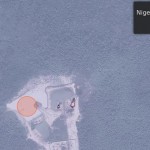This report addresses the complexity of civil litigation for compensation for oil pollution damage in the Niger Delta, and calls for the creation of a fairer and more consistent system of defining liability and payment in Nigeria.
The document outlines the development of international compensation before analysing international actions through foreign courts against multinational companies. Cases of international environmental compensation from across the world are presented, and the basic principles of compensation schemes are outlined. The current system in Nigeria is largely led by the companies through the Oil Producer Trading Section (OPTS). There is no fixed government rate of approved compensation rates, and litigation, a process that is slow and complicated by procedural technicalities, is the most common form of assessing damages. There is no current compensation system at all for spills caused by third-party action, and thus communities are blighted by the illegal actions of such parties, who are rarely prosecuted.
Thus, the report recommends the creation of a ‘source credible’ government list of value for losses due to pollution by either the Department of Petroleum Resources (DPR) or National Oil Spill Detection and Response Agency (NOSDRA), suggesting this be reinforced by a fund, administered by a respected body which would not pay out in the event of any claimants going to law.
Furthermore, in order to improve the relations between operators and local civil societies, the report calls for a major programme of education in the Niger Delta is required in order to tackle issues of transparency for those living near oil installations.





